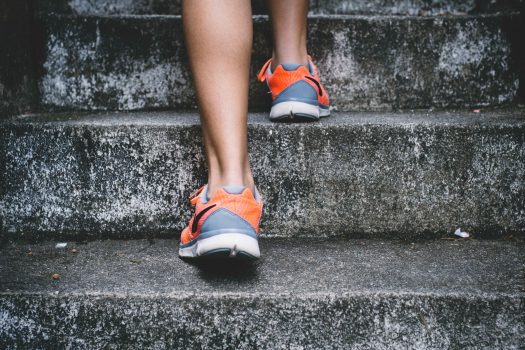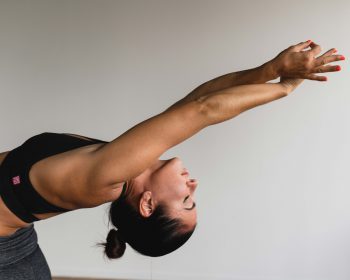Exercise may be the last thing you want to add to your plate this winter—why take it on when you’re already worried about your other responsibilities? With all these challenges, why would you further stress yourself out by tackling a new exercise routine on top of it?
Exercise may be the last thing you want to add to your plate this winter—why take it on when you’re already worried about your other responsibilities? With all these challenges, why would you further stress yourself out by tackling a new exercise routine on top of it?

Exercise may be the last thing you want to add to your plate this winter—why take it on when you’re already worried about your other responsibilities? With all these challenges, why would you further stress yourself out by tackling a new exercise routine on top of it?
Surely, you’re wondering how you’d fit it all into one day. Well, the good news is that there are lots of ways to integrate it into your daily routine. You can listen to lectures or recorded notes while you walk, run, or even during a workout. Though after a while, you may even find that you want to just unplug the biochem and turn up your favorite band.
Despite the obvious physical benefits of getting fit, exercise also has significant mental health benefits that can improve your quality of life. That’s right, exercise can take the stress factor out, so you don’t have to worry about it. Not only can it reduce your stress and anxiety levels, but it can also make you healthier overall—find out how.

Increases the production of “feel good” endorphins
During exercise, your body produces endorphin neurotransmitters that send positive, blissful signals to your brain while also acting as an analgesic to reduce feelings of pain. This is the coveted ‘runner’s high,’ which gives you a sense of euphoric well-being. Engaging in even a short 30-minute walk can work to chemically change your state-of-mind.

Boosts your self-confidence
The phrase #LookGoodFeelGood most certainly comes from a place of wisdom. If you’re in it to get fit or just want to start engaging in a daily walk, you’ll begin to see changes in yourself (both mentally and physically) based on the work you’ve put in. Self-confidence can also go a long way in those motivational pre-exam pep talks with yourself! Your self-image will grow as you meet your goals, build strength in your muscles, and stand at the top of the mountain you built with your own efforts.

Helps you balance mind and body movement
Most exercise involves repetitive motions that, once learned, cease to involve any strenuous mental engagement. It becomes a form of moving meditation that your body remembers and performs while your mind relaxes into a state of stasis or even mental nonbeing. Have you ever felt so stressed that you just wanted to hit the pause button? This type of exercise naturally helps guide you into a rhythmic ebb and flow to lose yourself in. Jogging, swimming, cycling, walking and even several types of martial arts, like Aikido or Tai chi can bring up this state-of-mind. Get out there and find the sport or activity that works for you.

Creates opportunities for social interaction
There is nothing more valuable than a friend you can help pull along, while they help push you forward. this goes for exercise as well as your road to DO licensure. Having strength in numbers is one thing, but having a friend, significant other, child, or fellow DO candidate, enables you to create positive and collaborative experiences to help remind you of life outside of this journey. Especially when it comes to exercise, having a workout buddy or engaging in a group class can help you blow off more steam than you ever would alone.

Improves your overall health
Future doctors: we’re pretty sure we don’t have to tell you that your health is important. Juggling exercise alongside everything else may seem like a trying task, but it will help you sleep better at night, literally. On the flip side, it can also help boost your energy reserves. Movement of your body helps to improve blood circulation, boost levels of good cholesterol in your blood, lower your blood pressure, and strengthen your immunity. Movement is life, and exercise can be your ticket to help keep you actively pursuing your health.
At the end of the day, there is no downside to trying your hand (or feet) at a new exercise regime to help decrease your stress and anxiety levels, especially during these extra challenging times. We know that you are working hard toward your DO goals, and with that, comes a tremendous amount of stress. That is why we want to encourage you to take a moment to stop toiling over what you cannot control and focus inward on what you can do to help yourself feel good. Exercise can assist in guiding not just your body, but also your mind to keep you balanced and keep you focused on pursuing your passion.






